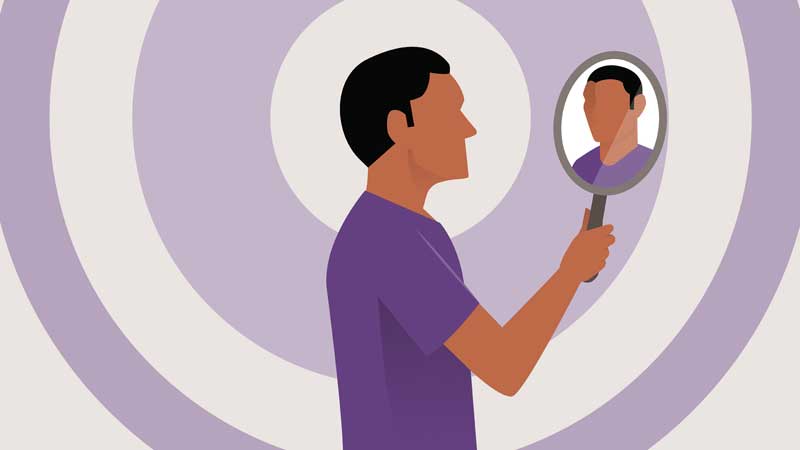Self-awareness can be just that, awareness of the body and mind. Self-awareness can also be related to experience of suffering. self-awareness is what tells us how we feel. It is our understanding of ourselves as individuals and of our experience in general that is so essential. And the worst thing that can happen to an individual is to lose their self-awareness. That can mean a dangerous loss of control of one's own life, for lack of self-awareness
A typical self-aware subject experiences his life as being filled with a great variety of emotions, sensations, and experiences of the body and mind, all of which are often unpleasant and overwhelming.
It is attempting to identify one's own inner experience of what one's life is like. Being conscious means that one is conscious of where one's body is, what one is thinking, experiencing. This being-aware is not struggling or wanting to escape from it; rather, one's self-awareness is accepting what is going on and does not view life negatively. The main difference between consciousness and self-awareness is that self-awareness seeks to be aware of one's own mind, whereas consciousness attempts to be aware of self-awareness
Self-awareness can be developed through various activities: meditation, yoga, art, prayer, yogic chanting, Yoga, Japa or any other form of meditation. Self-awareness is necessary in any spiritual practice, but it is particularly important in meditation. In meditation one seeks to get a clear vision of the inner essence of all dharmas. To truly release this inner essence the need for self-awareness is clear and it is essential
Mindfulness helps you improve your self-awareness. Like a child's learning to walk, mindfulness grows with practice. You get better at it by first developing a sense of your body's natural state and then developing awareness of your awareness. Like making it through a train window, each step you take to more deeply understand and live life means the less you have to rely on your senses to know yourself.
You cannot see yourself more clearly, you cannot touch yourself more clearly, or see yourself more clearly, if you don't know that the link is there. When you are dealing with a strong feeling of self-intimacy, it's easy to spend a great deal of time and energy focusing on your feelings, and trying to figure out what they mean. But there's more to it than that. If you're dealing with self-intimacy, your inner voice is making important decisions about how you see yourself, how you behave, and how you will respond to challenges that you face.
When we observe and connect what our brain is doing, we perceive the external world. Your brain operates on a single-thread: left, right, up, down. Our goal is to tap into the instantaneous multi-thread of our world. We want our clients to become subconsciously aware of their feelings, behaviors and mindsets. Our goal is to help them become self-aware without even realizing it. How do you know if you have achieved self-awareness? If you take a few moments and truly notice yourself, what you perceive, you will see yourself as you are right.


